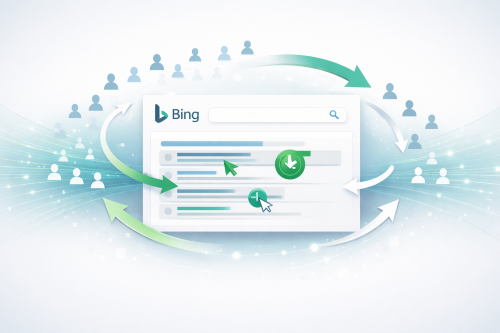Content relevance means how well your page matches what users are looking for. When your article, product page, or guide aligns perfectly with the intent behind a search query, you’ve nailed the relevance of the content.
Think of it as a conversation between your audience and your website. If they ask “best SEO tools for small businesses,” and your post clearly answers that with actionable advice, comparisons, and examples, you’re delivering relevant content.
Why does this matter? Because search engines like Google prioritize content and page relevance. They want to show users the best possible match. When your content hits that sweet spot of helpful, fresh, and on-topic, it not only ranks higher but also keeps readers engaged longer.
Real-world example
If a user searches for “how to measure content relevance,” and your page walks through analytics metrics, engagement data, and optimization techniques, Google sees strong engagement signals. Over time, that tells search engines your content truly answers the query.
How Google evaluates content relevance
Google uses hundreds of signals to determine content relevance SEO. The most important ones fall under a few key categories:
- User intent: Does your content satisfy what the searcher actually wants to know or do?
- Semantic relationships: Google’s algorithms look for context, synonyms, and related topics. For example, “how to measure content relevance” relates semantically to “content optimization metrics.”
- Engagement metrics: Higher click-through rates, longer dwell times, and low bounce rates show that users find your page useful.
Remember, relevance of content is not about keyword stuffing. It’s about understanding the topic deeply and providing value that aligns with what people expect to find.
How to measure content relevance
Wondering how to measure content relevance? Start with these core metrics and tools:
Key metrics:
- Bounce rate: If users leave quickly, your content may not match their search intent.
- Time on page: Longer reading time usually means higher engagement and better topic alignment.
- Conversions: When readers take action, it’s proof your content hit the mark.
- Keyword coverage: Are you covering the main and secondary queries naturally?
Tools to use:
- Google Search Console: Check which queries your content ranks for.
- Analytics dashboards: Track dwell time, exits, and conversion rates.
- Heatmaps: Visualize where users scroll, click, or drop off.
When engagement metrics drop, it’s a sign you need to start improving content relevance.
Content relevance optimization strategies
Content relevance optimization means refining your content so it better matches user intent and search algorithms. Here’s how to improve the relevance of online content:
- Align with search intent:
- Informational: Teach or explain clearly.
- Navigational: Direct users quickly to what they need.
- Transactional: Make it easy to buy or sign up.
- Structure for clarity:
Use focused H1s and subheads that mirror user queries. Organize content in a way that’s skimmable and easy to follow. - Refresh and expand:
Add new data, update stats, and include examples that reflect current trends. - Build topical authority:
Interlink related content and show depth across your niche.
These practices help your content stay relevant to both search engines and humans.
Updating older content to maintain relevance
Even the best content ages. Algorithms evolve, industries shift, and what was once cutting-edge can quickly become outdated.
That’s why updating older content to maintain relevance is one of the smartest SEO moves you can make.
Signs your content is outdated:
- Old statistics or examples
- Broken links
- Declining traffic and engagement
- Competitors ranking above you for similar topics
How often to audit content library for relevance:
Run a full audit every 6–12 months. Identify pages with declining performance and prioritize updates based on traffic potential.
Quick wins:
- Refresh data and visuals
- Add internal links to newer articles
- Optimize meta tags and headers
Rethinking relevance in content marketing
Rethinking relevance in content marketing means realizing that relevance evolves. Audience needs change. Search intent shifts. And new competitors emerge daily.
Brands that consistently win are the ones that stay close to their users and continually adapt. Think of how HubSpot or Ahrefs publish updated guides yearly to stay aligned with current SEO practices.
Relevance is the new ranking signal
Relevance isn’t a one-time checklist. It’s the foundation of every content strategy.
Tools like SearchSEO can help you bring in organic traffic and improve click-through rates by simulating genuine user engagement and visibility. These signals can boost your rankings and help your pages get the attention they deserve.
But here’s the truth, no matter how strong your CTR or technical SEO is, only relevant, high-quality content keeps you in the game for the long haul. When you pair SearchSEO’s traffic-boosting power with consistently updated, intent-focused content, you’re not just ranking, you’re building lasting authority in your space.


.svg)

.svg)
%201.png)








.svg)